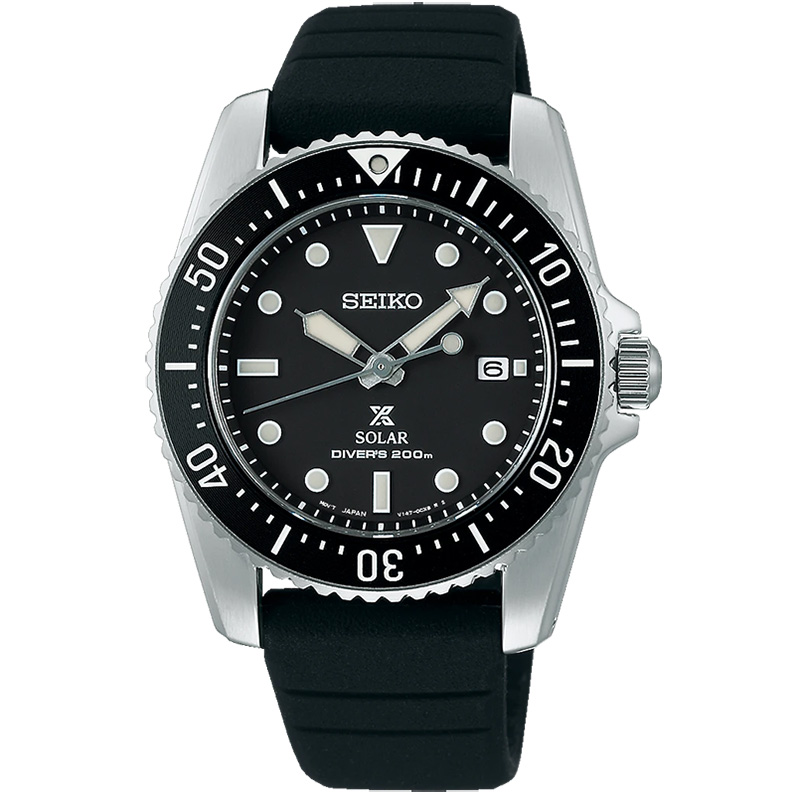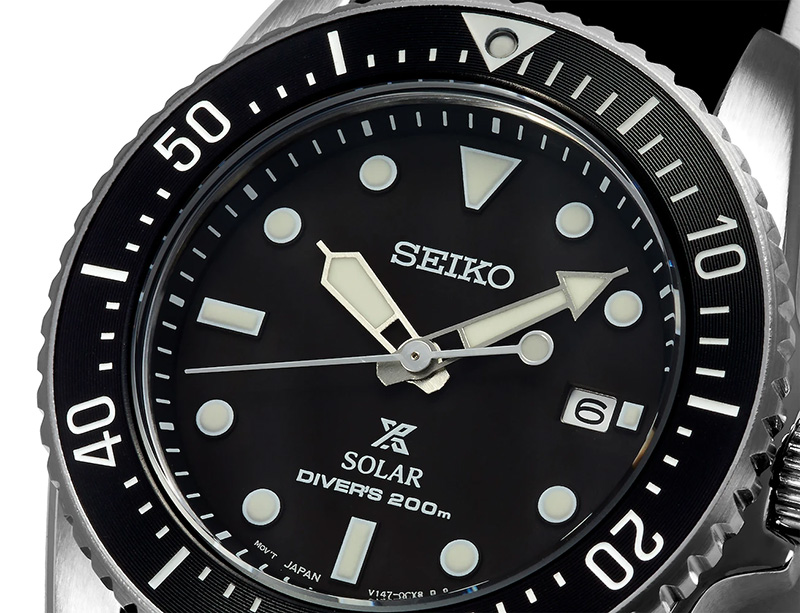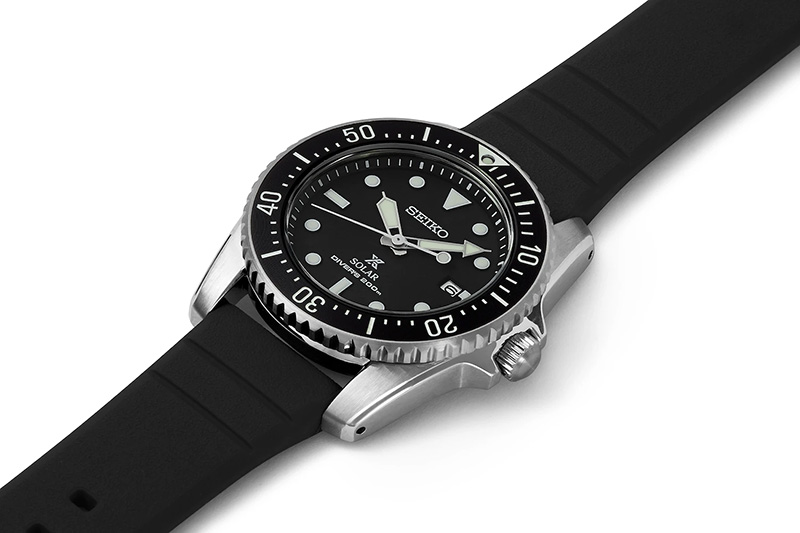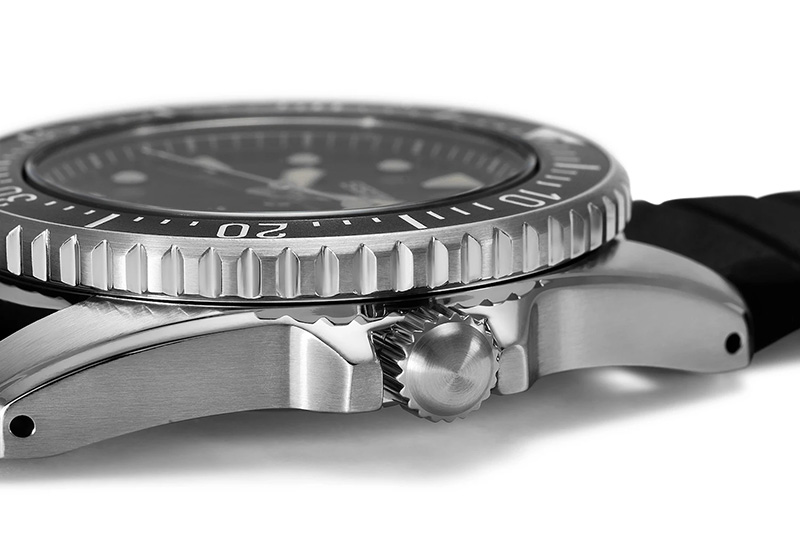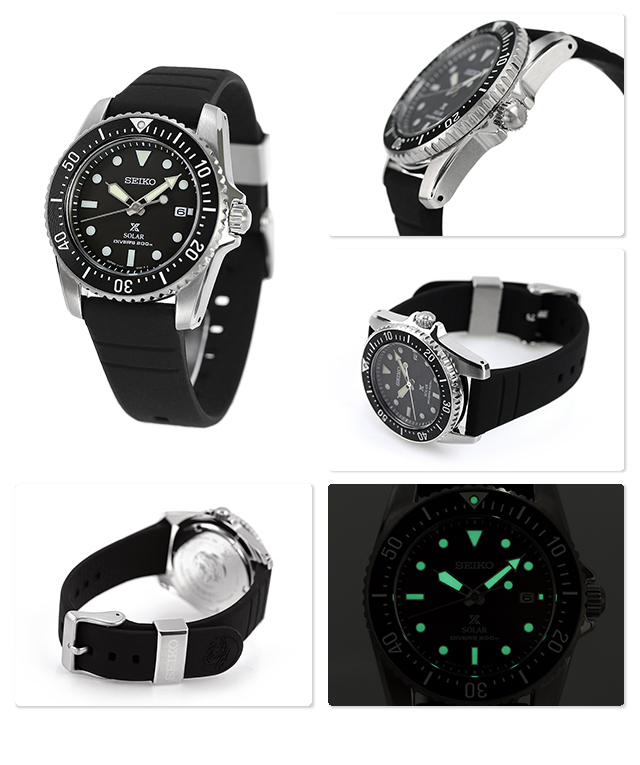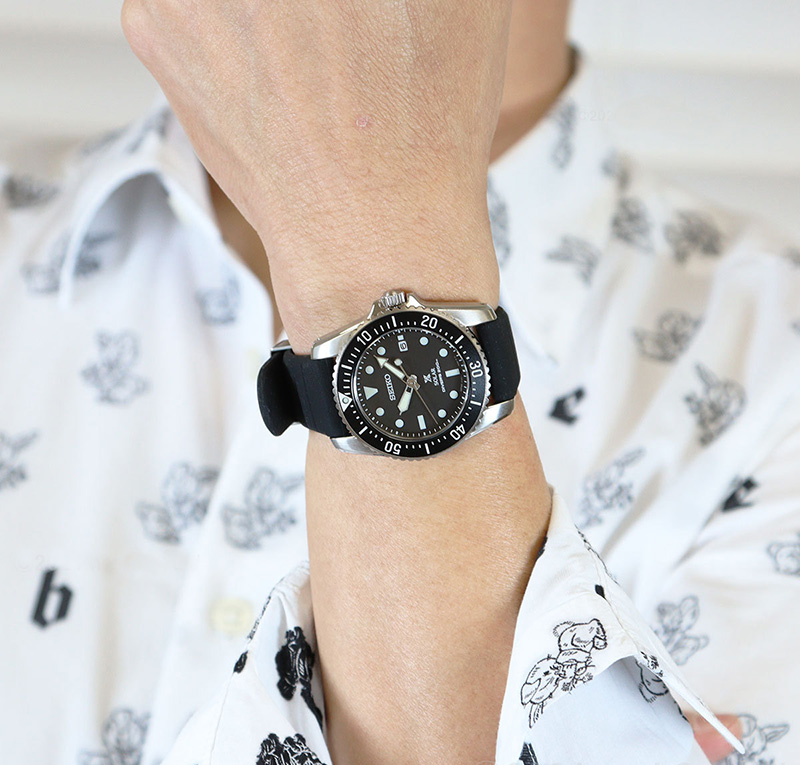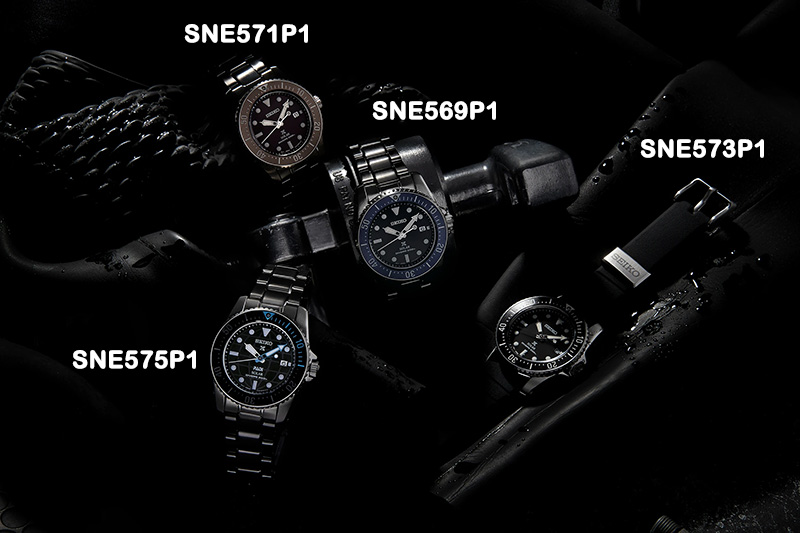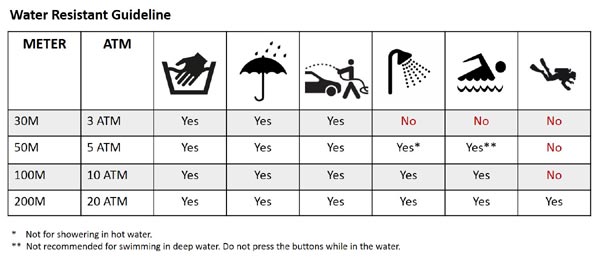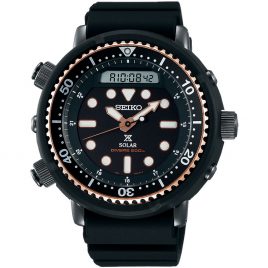Description
SEIKO Prospex SNE573P1 Specifications :
| Feature |
| ||
|---|---|---|---|
| Driving system | Solar | ||
| Caliber Number | V147 | ||
| Case material | Stainless steel | ||
| Case back | Solid | ||
| Band type | Bracelet | ||
| Band material | Strap | ||
| Band color | Silicone | ||
| Band width | 20 mm | ||
| Clasp | Buckle | ||
| Dial color | Black | ||
| Glass material | Sapphire crystal | ||
| Hands | Luminous grey, black and silver tone (hour, minute) with grey-silver tone second hand | ||
| Dial markers | Grey silver tone dots with baton indexes at 3, 6, 9 and double trapezoid indexes at 12 o’clock | ||
| Second markers | Minutes markers around the outer rim | ||
| Lumi Brite | Hands, indexes and bezel | ||
| Bezel | Unidirectional rotating black colored stainless steel with arabic numerals minutes markers per 10 minutes scale | ||
| Crown | Screw down at 3 o’clock position | ||
| Calendar | Date display at 3 o’clock position | ||
| Function | Date, hour, minute, second hand | ||
| Accuracy | ±15 seconds per month | ||
| Vibration | 21,600 vibrations per hour (6 beats per second) | ||
| Drive duration | Operating for approximately 10 months (when fully charged) | ||
| Water resistance | 200 m / 660 feet water resistance suitable for air diving | ||
| Size | Length : 46.5 mm x Diameter : 38.5 mm x Thickness : 10.6 mm | ||
| The perimeter of bracelet | 210 mm | ||
| Weight | 79 g |
SEIKO Prospex SNE573P1 Features :
- Date display
- Screw case back
- Screw-down crown
- Unidirectional rotating bezel
- Overcharge prevention function
- Quick-start function
About Seiko Prospex Sea Diver SNE573P1
As a culmination of Seiko’s developments in watchmaking technology, today, a diver’s watch in a stainless steel case with green dial offering water-resistance of up to 200m is introduced.
From the introduction in 1965 as Japan’s first diver’s watch, the engineers never stopped to innovate. The trust this watch has gained goes beyond the borders of Japan and into the world. Because of that, Seiko facilitated the establishment of the standard for diver’s watches in International Standard Organization (ISO), and Japan Industrial Standards (JIS). As for the ISO, Seiko lobbied the organization to amend the standard to match the actual use of diver’s watches in the deep sea. In 1996, ISO6425 with annex, about diver’s watches for mixed gas diving, was issued. Moreover, Seiko’s relentless challenge and innovation have driven the company to create a model that could truly be called authentic.
Behind Seiko’s diver’s watch that has been chosen by divers world wide, there are qualified engineers who work to developed technology that the world has never seen.
First, through significant innovation, water resistance and impermeability has proven to be the finest in world class. Above all, along with functionality, using specialized material and precise detail in structure, the timepiece is made to perfection. In addition, Seiko’s determination and innovative technology resulted in many patents to preserve the company’s authenticity.
Since then, there are countless products labeled as a diver’s watch around the world but only a negligible number of these timepieces are functional in professional environments.
History of Seiko Prospex Sea Diver SNE573P1
When Kintaro Hattori founded his company in 1881, he was just 21 years old. During his fifty years at the helm, Seiko became the leading watch company in Japan, with its own design and production facilities. This achievement was a direct result of his single-minded vision that Seiko should be “Always one step ahead of the rest”. His words resonate still and continue to inspire Seiko today. Throughout this year, Seiko will release a series of creations that embody the spirit of Kintaro’s words and honor the140th anniversary of the founding of his company. The celebrations start with a series of Prospex, Presage and Astron watches inspired by the landscapes, seascapes of Japan.
From Seiko Prospex, a new series focuses on the beauty of nature. The watches capture the deep green scenery of the rich ocean that surrounds Iriomote Island.
The island of Iriomote in Okinawa Prefecture attracts divers from all areas of the world. Its abundant coral reefs teem with marine life but the island’s special charm lies in the primeval and pristine mangrove forests that surround it. Further, Iriomote is home to several species of flora and fauna that are rare and, in some instances, unique to the island.
Progression of Seiko Prospex Sea Diver
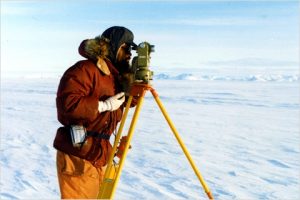
Earning credibility through vigorous adventures in the North and South Pole.
From 1966, the timepiece has been brought on 4 missions with the Antarctic Team of the Geospatial Information Authority of Japan. Later on, numerous adventurers and explorers have made achievements such as successfully ascending Everest gearing Seiko’s diver’s watch. After years of proving itself worthy of withstanding extreme environments, Seiko’s diver’s watch has earned its integrity.
 |  |
Exceeding any expectation of water resistance with the depth of 1062 meters.
In May of 1983, two Professional Diver’s 600 meters were mounted on Shinkai 2000, a research submersible used by JAMSTEC (Japan Agency for Marine-Earth Science and Technology). The watch was originally intended for use up to 600 meters, yet the timepiece withstood water pressure at a depth of 1062 meters. As a result, the watch’s legibility, precision, and exterior remained unscathed, continuing to strengthen its credibility.
Courtesy: JAMSTEC
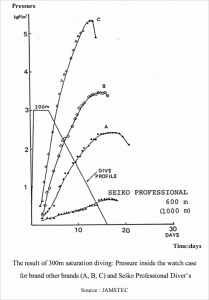
The result of 300m saturation diving: Pressure inside the watch case for brand other brands (A, B, C) and Seiko Professional Diver’s
The vertical line shows the pressure inside the watch case and the horizontal line indicates the period of time.
After the dive, the air pressure inside the watch case gradually went up.
Seiko Professional diver’s scored the best result and verified that it is strong enough to function even at great depths.
Proving its significant impermeability.
For saturation diver’s watches, helium is a constant issue. That is to say, the gas penetrates the glass, and in some cases the difference in external and internal air pressure causes the glass cover to break. While other companies focus on methods to release Helium with an escape valve, Seiko took a different turn and developed a glass case that is practically impermeable to Helium gas. This is the creation of Seiko’s Diver’s Professional 600M. Then, in 1983, JAMSTEC conducted an impermeability test by submersing several diver’s watches under 300M saturation diving. Consequently, Seiko’s Diver’s Professional 600M proved to be up to ten times more impermeable to Helium gas compared to other companies. In short, the true diver’s watch continues to prove itself.
Courtesy: JAMSTEC
History of Seiko
The company was founded in 1881, when Kintarō Hattori opened a watch and jewerly shop called “K. Hattori” (服部時計店 Hattori Tokeiten) in the Ginza area of Tokyo, Japan. Eleven years later, in 1892, he began to produce clocks under the name Seikosha, meaning roughly “House of Exquisite Workmanship”.
The first watches produced under the Seiko brand appeared in 1924. In 1969, Seiko introduced the Astron, the world’s first production quartz watch, it cost the same as a medium-sized car. Seiko later went on to introduce the first quartz chronograph.

